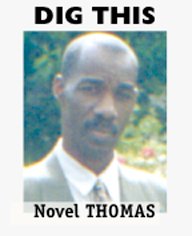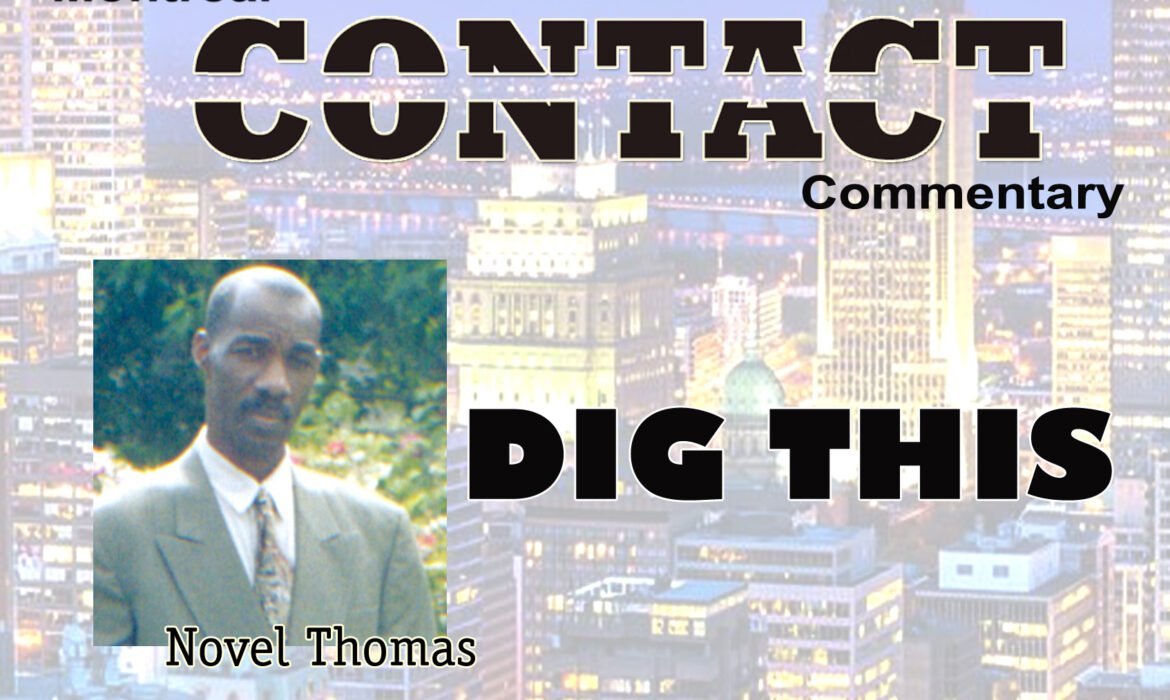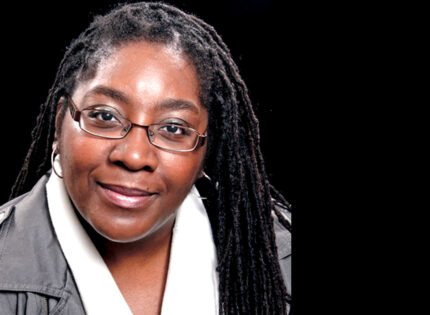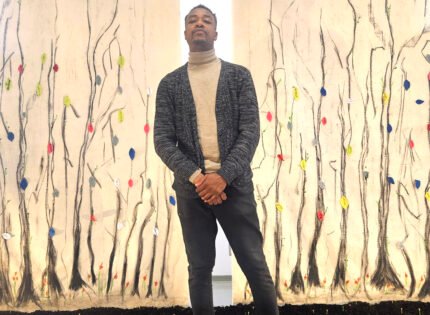 So another Black History Month has been observed.
So another Black History Month has been observed.
Now, I don’t know if the correct term to describe the 28 or 29 days of BHM is “recognize”, “observe”, or “celebrate”, but given the personal nature of one’s inter-est or involvement, any of those words is apropos or acceptable.
It’s all about one’s interest and involvement. One thing is certain, the 2021 edition of Black History Month is gradually running out.
Like a succulent meal or refreshing drink, if you were motivated to involve in one related event or more then you took away, and hopefully will remember, something from it.
It’s the nature of this annual consciousness-raising happening. And the reaction is invariably varied: inter-esting/informative/educational. Ultimately, it’s about individual participation and one’s personal experi-ence in relation to our collective existence and individual interests in Black peoples’ lives and interests so far in our collective existence so far.
History is about learning and remembering important events in our personal life, especially at this juncture of our collective existence, for those of us who care about our Black existence — collective experiences… — seriously.
One thing that comes to mind as BHM plays out is the abundance of interesting, Black-focussed subjects and issues that should interest not just Black people, but all people.
For me, both CBC radio and television alike, have been valuable sources of information, both providing various historic vignettes the duration of Black History Month about Black people who have set their roots in Canadian soil over decades.
They came from places far-and-wide, as distant as the African continent, Europe, the Caribbean and other parts, and as close as the northern and southern United States all with one thing in common: seeing Can-ada as a safe and welcoming place of refuge to escape racism and find a safe and welcoming place of economic opportunity and to raise families.
But with a growing white population, Canada was not without its own exclusionary racist practices. Many believed Black people were not suited for the cold Canadian winters?
I remember that sentiment from one of my Canadian history books.
A recent CBC radio guest, one Adam Rudder, also alluded to that and other racial matters during a discus-sion
some many white people still believe Canada is “for white people only…” And would be better off in the Carib-bean, Africa, or some other tropical region.
I remember that sentiment from one of my Canadian history books safely resting in a box of academic texts from yesteryear, high school.
I remember that sentiment from one of my Canadian history books.
As one online article states:
In early twentieth-century Canada, there was widespread domestic pressure to ban black immigration, al-though the number of black immigrants seeking entry to Canada was quite small.[1] Immigration agents participated in the alarmist exclusion by creating many obstacles for immigrants of African descent. For instance, Canadian immigration authorities would often ignore black inquiries for information or assistance. If pressed to respond, the immigration branch used a form letter that stated in part that black settlers were not considered “a class of colonists who will be likely to do well in our country.” Canadian authorities also paid for agents to lecture and write in the United States, to warn African-Americans of the pernicious nature of Canada and to instruct them that it was not a suitable destination for them.
A recent CBC radio guest, one Adam Rudder, a historian and Sessional lecturer at UBC, currently working on a book about the “the secret history of Black Vancouver…” and the history of racism in that part of Can-ada.
“… It’s part of our human history,” Rudder states.
The national broadcaster on radio and television alike was reliable source of Black History Month informa-tion throughout the month of February. Kudos to them for the various Black history-oriented vignettes and documentaries in prime time.
And one must add that CBC is also a reliable source of relevant information/programming throughout the year.
Tune in throughout the year, especially on weekends.
So did you learn anything (new) this 2021 Black History Month?
After all, history is everyone’s business, but each February it’s about bringing [our] Black history to the fore and addressing unfinished business in the public sphere, an ongoing generational process of lessons being taught everyday by official and unofficial teachers of Black history by sharing (their various) nuggets/facets of Black/African history daily, especially highlighted throughout the month when Black people are infused with a heightened sense of awareness of Black [African peo-ples’] history, which is everybody’s history.
And there are many formal educators who capably fill the historical void (not just that annual North American portion and serving, but the missing masses) of Black history as it were).
Many formal and progressive Black educators are available to bring variety to the classroom and that historically embedded Eurocentric history landscape. Black history, meaning from the massive continental landscape to the diaspora are as important as Europe’s history, which every Black per-son reading these words can relate to.
At some point in our indoctrination process we had to imbibe a lot of it. Hence the need for serv-ings of Black history over the last three decades or so to complement the historic servings of Eu-ropeanism.
As we all know, most of our historic indoctrination began at that early impressionable age when all teaching and learning tools were primarily Eurocentric. As such, February, with that semblance of heightened awareness of [our Black] history is a period to cram as much as we possibly can.
Personally, this year, with the general constraints of the COVID-19 pandemic, was a prime year to learn a little more — by way of reading, conversing and other modes of learning, informing and educating…
As mentioned earlier, the 2021 edition of Black History awareness seemed to have awakened media honchos.
As the history of Black history continues to play out almost on a daily basis, vigilance remains the operative word — until further notice.
In my view, the 2020 year of reckoning, what with the coming to international prominence of the Black Lives Matter movement fuelled in part by the public [police] murder of one George Floyd and the resulting global reaction and resonance in its aftermath, must be viewed in a historical context vis-à-vis the history of Black people and our beginnings, culminating in our current historical pres-ence in relation to the existence of those perennial historical social forces that continue to obstruct our generational and historical attempts and desire to overcome those obstructionist forces aided and abetted by now established social norms…
In the meantime, I must say kudos to that determined group of Black people who are willing and clearly determined to raise/revive the NCC (Negro Community Centre).
After all, it’s a most important part of Black History that was allowed to suffer a long, painful exis-tence in its later years then die a crumbling, painful death.
With the right people, without ulterior motives, everything is possible, and there’s always hope…
Vive l’espérance. Lazarus might rise from his resting place, in time for a future Black History Month.













